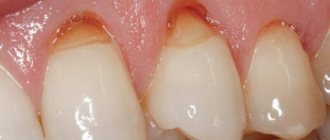The microecology of the vagina is a set of mechanisms that maintain the stability of the population and quantitative composition of the microbiocenosis. Normally, the dominant microflora of the vagina is lactobacilli, opportunistic microorganisms make up from 5 to 10%.
When hormonal levels are disrupted and immunity decreases, the growth of lactobacilli is inhibited, which leads to a shift in vaginal secretions to the alkaline side. Against this background, there is an increase in pathogenic microflora, an increase in the concentration of enzymes and organic acids, which, by destroying the protective layer of mucus, contribute to the penetration of infection in an ascending manner.
Causes of unpleasant vaginal odor
The first thing that comes to mind if there is an unpleasant odor from the vagina is an inflammatory process. Sometimes this diagnosis is confirmed at a doctor’s appointment. Other variants of this unpleasant symptom are metabolic or hormonal imbalances, which can also be accompanied by a change in odor from the woman’s genital tract.
The list of diseases that are characterized by an unpleasant odor symptom is as follows:
- Dysbacteriosis. This disease refers to conditions in which the normal balance of “good” and “bad” microorganisms that populate the vaginal mucosa is disrupted. When immunity decreases, vaginal dryness or other problems occur, pathogenic microflora begins to develop rapidly, which causes an inflammatory process.
- Thrush. Thrush or candidiasis is a fungal infection. When taking a smear in the mucous membrane, laboratory tests reveal an increased amount of Candida type fungi, which are classified as opportunistic. That is, in order for thrush to begin, favorable conditions must be created. Most often, such conditions are created when immunity is reduced, for example, seasonally, due to hormonal changes or taking antibiotics.
- Gardnerellosis. It is bacterial vaginosis or vaginitis, caused by the bacterium Gardnerella vaginalis. This disease is easily diagnosed by its specific “fishy” smell. It should be noted that the vast majority of cases of gardnerella disease are sexually transmitted. However, this bacterium can be transmitted through household hygiene products. It is also worth noting that the unpleasant odor from the vagina after sex with this disease increases sharply.
- Colpitis. This disease is an inflammation of the vaginal walls, in which the coccal flora most often acts as the causative agent.
- Chronic sluggish processes in the female reproductive organs.
If an unpleasant odor from the vagina appears during pregnancy or after childbirth, then you should not immediately panic. In these conditions, the causes of unpleasant odors, in addition to the above diseases, may be:
- hormonal changes that increase or decrease the amount of natural secretions;
- postpartum discharge, which may also have a slightly unpleasant odor, but after 1-1.5 months such discharge should no longer bother the woman.
Expert opinion
If an unpleasant, putrid odor appears from the vagina after childbirth, you should immediately consult a doctor, as this may be a symptom of inflammation in the uterine cavity. Also, if symptoms of an unpleasant odor appear along with itching, burning or pain during pregnancy or after childbirth, you should consult a gynecologist as soon as possible.
Obstetrician-gynecologist of the highest category Oksana Anatolyevna Gartleb
unpleasant vaginal odor
Another common question is the causes of unpleasant vaginal odor after menstruation. There may be several options here:
- failure to comply with hygiene rules during this difficult period for women;
- proliferation of pathogenic microflora, for which menstrual flow is an excellent nutrient medium;
- hormonal disorders.
What to do with all this? To listen to the body or not to listen?
Problems with the perception of odors usually indicate the very nutritional deficiencies that the mechanism triggered by progesterone is designed to look for. A detailed biochemical blood test will show if something is missing.
Look at which natural products contain the vitamins and microelements you need, perhaps they are what you are drawn to, and it is their smell that is most attractive to you.
If not, if you don’t even want to look at foods rich in the substances you need, but the smell alone makes you feel sick or turn you inside out, don’t rush to start stuffing this product into yourself. Look for the necessary substances in other products whose smell and taste will be pleasant to you.
Let's consider all of the above in a specific situation. A woman does not have enough calcium in her body. A sign of this may be an unhealthy craving for sweets. Paradoxically, it is calcium that is used to break down sugar (sucrose) in the gastrointestinal tract. Here is the same example when the body “confused” what is useful for it and what is not. Cottage cheese and dairy products are considered the best sources of calcium, but a pregnant woman cannot even look at them, let alone eat them. We are looking for other sources of calcium, among which sesame and poppy seeds come first. Sesame paste with Jerusalem artichoke syrup (a healthy sugar substitute that does not require calcium for digestion) is an excellent source of calcium and a wonderful treat.
Cute and gentle set for pregnant womenbuy
Stylish feminine set of shirt and robebuy
Beautiful robe complete with nightgownbuy
What to do if you have an unpleasant vaginal odor?
Self-treatment if an unpleasant odor appears from the vagina is not a solution. In this case, the problem may become even more serious. Therefore, it is necessary to clearly establish the cause of the unpleasant odor, for which the gynecologist takes a smear for laboratory testing. If any infections are detected, the doctor must prescribe treatment, which often involves the use of local medications that do not affect the entire body. This is especially important during pregnancy, as well as in the postpartum period.
If the cause of unpleasant odor from the genital tract is associated with vaginal dysbiosis, the Gynocomfort Restoring Gel can be used as an additional remedy used in the complex treatment of dysbiosis. Developed by specialists from the pharmaceutical company VERTEX, this product underwent clinical trials at the Department of Dermatovenereology with the clinic of St. Petersburg State Medical University and showed its high effectiveness in normalizing vaginal biocenosis.
Vitamins in complex therapy in the treatment of unpleasant vaginal odor
In addition to the treatment prescribed by the doctor, a woman should consider strengthening the body’s immune defense. This is especially necessary if the doctor has identified thrush or another infection that occurs with decreased immunity or hormonal imbalance. In this case, courses of vitamins, a revision of the diet in favor of vegetables and fruits, and an increase in the amount of clean water that a woman drinks daily will be useful. Also during the treatment period, it is especially important to avoid intimacy, carefully observe hygiene rules and completely abandon bad habits. Smoking and alcohol not only seriously reduce immunity, but also provoke hormonal imbalances.
For daily intimate hygiene, the use of special products is recommended.
For example, the use of Gynocomfort washing gels helps maintain the natural microflora of the vagina at the required level. These products were developed by specialists from the pharmaceutical company VERTEX and have all the necessary documents authorizing their use for intimate hygiene. Sources:
- BACTERIAL VAGINOSIS IN PREGNANT: PROBLEMS AND SOLUTIONS. Voronin K.V., Chuiko V.I., Ben Saada Nakhla // Medical perspectives. – 2011. – No. 4. – pp. 97-106.
- MODERN VIEWS ABOUT THE MECHANISMS OF DEVELOPMENT OF VAGINAL DYSBIOSIS. Dobrokhotova Yu.E., Zatikyan N.G. // Obstetrics, gynecology and reproduction. – 2008. – No. 1. – P. 7-9.
- The state of vaginal microbiocenosis and methods for correcting its disorders during pregnancy. P.V. Budanov, A.N. Strizhakov // Issues of gynecology, obstetrics and perinatology. – 2007. – T.6, No. 5. – pp. 89-95.
- Etiopathogenesis, diagnosis and modern directions in the treatment of bacterial vaginosis. V.N. Prilepskaya, G.R. Bayramova // Russian. honey. magazine. – 2002. – T. 10, No. 18. – P. 705-797.
- Possibilities for correcting dysbiotic conditions of vaginal and cervical canal biotopes in pregnant women at risk. AND ABOUT. Kryzhanovskaya, E.Yu. Lebedenko, A.S. Martyshenko, V.V. Chernavsky // Rus. honey. magazine. – 2003. – No. 1. – pp. 27-30.
- https://www.medicalnewstoday.com/articles/317560.php
- https://www.healthline.com/health/womens-health/how-to-get-rid-of-vaginal-odor
- https://www.verywellhealth.com/why-does-my-vagina-smell-funny-3133225
How can you make your life easier if smells make you feel unwell?
Let's break all the smells into several categories. Let us immediately note that non-acceptance of certain odors may indicate a problem, or it may not indicate anything. Therefore, you should not look for difficulties where there are none. For example, it is often said that aversion to the smell of some people indicates a bad attitude towards them. This is wrong. After childbirth, your sense of smell returns to its previous level, and many of the smells that you felt during pregnancy simply cease to be felt.
Stylish maternity tunic with hood and kangaroo pocket buy
Maternity jeans with elastic belly insert buy
Popular questions
Hello, I have been experiencing discharge with an unpleasant fishy odor, especially during sexual intercourse.
I tried pimafucin suppositories, there were no results, please tell me what to do? Hello! To clarify the diagnosis, I recommend conducting an examination - analysis of femoflora screening 12, which will clarify the cause of bacterial vaginosis. Before receiving the test result, you can begin treatment by using Elzhina complex suppositories for 6 days in combination with Gynocomfort gel with tea tree oil. The obtained result will allow you to adjust the treatment.
Will the smell disappear if I use GINOCOMFORT?
To eliminate odor in the genital tract, Gynocomfort gel with tea tree oil is suitable. In addition to anti-inflammatory components, it also contains lactic acid, which will increase the number of lactobacilli and will optimize the pH environment in the genital tract.
Good evening. I have discharge with an unpleasant odor, which gets worse after intercourse. Could this be Gardnerellosis? And how to treat?
Hello! First of all, you should see an obstetrician-gynecologist and undergo an examination to determine the exact cause and identify pathogenic microflora. This will help you correctly draw up a treatment and recovery plan. While waiting for results, you can start using Gynocomfort gel with tea tree oil, which will have an anti-inflammatory effect and speed up the healing process. The gel is applied once a day for 14 days.
Hello, Oksana! I developed a very strong vaginal odor. There’s simply no time to go to the hospital. Please suggest an effective treatment, suppositories, tablets, etc. Thank you in advance.
Hello!
A change in the smell of discharge from the genital tract can accompany a number of diseases from bacterial vaginosis to specific inflammation. Therefore, it is not possible to recommend a universal remedy without conducting an examination aimed at identifying the pathogen and conducting an examination to clarify the prevalence of the process. The use of Gynocomfort gel with tea tree oil will help improve your well-being and prevent the spread of inflammation until the results of examinations are received, as well as speed up the healing process. The product is used 1 dose 1 time per day for 7-14 days as needed. For an accurate diagnosis, contact a specialist
What discharge is normal during pregnancy?
Normally, discharge during pregnancy is clear or white, usually sticky, without a distinct odor. If the discharge leaves yellowish marks on your underwear or sanitary pad, don't worry. During pregnancy, levels of the hormones estrogen and progesterone rise and blood flow to the vagina increases, so there may also be more discharge, especially in the second trimester. In fact, the discharge protects the fetus from infection, because this is how the vagina naturally cleanses itself and removes dead cells. After the full gestation period (at the 39th week), the discharge may become mucous. This is a mucus plug, which we will talk about in more detail below.
Is discharge a sign of pregnancy?
As a rule, discharge is not a sign of pregnancy, but at the very beginning of pregnancy, spotting is sometimes observed. This is implantation bleeding that occurs when a fertilized egg attaches to the lining of the uterus. In early pregnancy, this discharge is usually pink in color, slightly paler than menstrual bleeding.
By the way, if you just recently found out that you will become a mother, we recommend calculating your approximate due date using our calculator.









